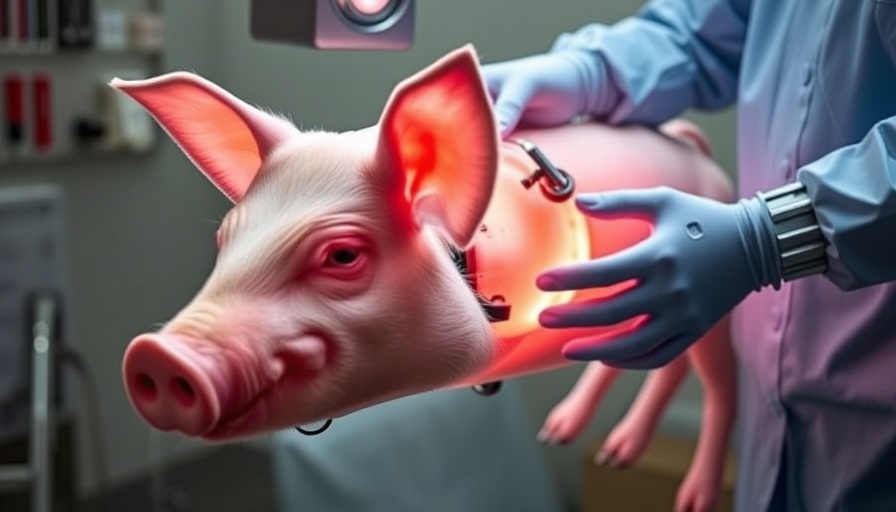
Human-Like Precision: The Dawn of Automated Surgery
The landscape of medicine is on the brink of a transformative shift as researchers at Johns Hopkins University usher in a brave new era of automated surgery. After remarkable success in conducting operations on dead pig organs, the idea of fully autonomous robotic surgery could evolve from fiction to reality within the next decade. In a series of meticulously crafted procedures, an AI-trained robot successfully removed gallbladders with a flawless 100% success rate, significantly impressing the medical community.
The Role of Artificial Intelligence in Surgical Robotics
This technological leap is driven by advanced AI, capable of learning from video footage of expert surgeons at work. The robots utilized sophisticated tools to handle delicate tissues, marking a significant milestone toward clinical deployment. As robots take on the herculean task of emulating human skills, John McGrath, a leading expert in robotic surgery, described the achievement as "impressive" and a sign of the growing autonomy within medical technology.
The Promise of Enhanced Surgical Outcomes
The implications of these developments are profound. Given that annual robotic procedures already boast remarkable success rates, the idea of introducing more autonomous systems raises the possibility of reducing surgical errors further. With robots capable of planning better trajectories and making real-time adjustments, patient safety could be greatly enhanced.
What It Means for the Future of Healthcare
Within the NHS, there’s a goal to revolutionize surgical practices by increasing the proportion of robotic-assisted surgeries from 20% to a staggering 90% over the next decade. This transformation potentially means swifter operations, shorter recovery times, and overall better surgical outcomes. As robotics and AI penetrate deeper into healthcare, they might redefine the essence of what it means to receive care.
Engaging with the Future: Skills and Education
As we stand at this intersection of healthcare and technology, there’s a pressing need for informed individuals. Understanding AI concepts and machine learning fundamentals will become crucial for future professionals in the field. Resources for learning AI, including tutorials and insightful case studies, are readily available for those eager to dive into this evolving paradigm.
In a world where artificial intelligence increasingly governs procedures, transparency and ethical considerations must remain paramount. Researchers and engineers must ensure that these powerful tools are utilized responsibly, maximizing benefits while minimizing risks. The journey towards robotic autonomy in surgery is only beginning, but if managed wisely, it promises a future that bravely combines human expertise with the precision of machines.
 Add Row
Add Row  Add
Add 




 Add Row
Add Row  Add
Add 



Write A Comment